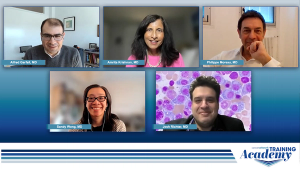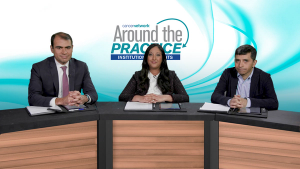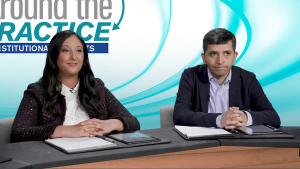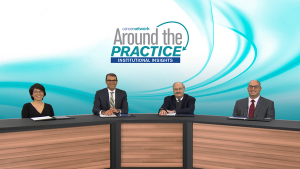Articles by Alfred Garfall, MD
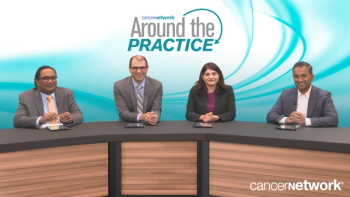
Panelists discuss how bispecific antibodies targeting B-cell maturation agent, GPRC5D, and FcRH5 are transforming relapsed/refractory multiple myeloma treatment (R/R MM) with promising efficacy, manageable safety profiles, and convenient off-the-shelf administration.

Panelists discuss how sequential B-cell maturation agent (BCMA)–targeting therapies can be effective despite potential resistance patterns, with experts evaluating factors like prior response duration, alternative targets like GPRC5D or FcRH5, and patient-specific characteristics when deciding treatment sequencing after CAR T progression.

Panelists discuss how teclistamab administration and outcomes vary between academic and community settings, highlighting the need for standardized monitoring protocols, staff education, and communication frameworks to ensure consistent patient care and safety across different practice environments.

Panelists discuss how long-term follow-up data from MajesTEC-1 demonstrates teclistamab’s sustained efficacy and safety profile while identifying optimal candidates based on factors like prior therapy exposure, disease characteristics, and fitness level.

Panelists discuss how talquetamab demonstrates superior efficacy compared with physician-chosen treatments for patients with heavily pretreated multiple myeloma, with improved progression-free survival and response rates.

Panelists discuss how emerging therapies like bispecific antibodies, chimeric antigen receptor (CAR) T cells, and novel drug combinations are reshaping treatment options for patients with relapsed/refractory multiple myeloma (R/R MM) who have exhausted standard approaches.
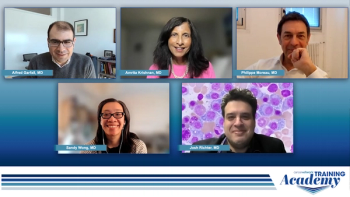
Before closing out their program on bispecifics in multiple myeloma, expert oncologists consider the value of these agents in more challenging patient populations.

Following their review of non-BCMA-targeting bispecifics in multiple myeloma, panelists consider practical use of these agents and how they may fit into the real-world treatment paradigm.

A brief discussion on clinical trial data with cevostamab therapy followed by considerations for other non-BCMA-targeted agents being studied in the setting of multiple myeloma.

Switching its focus to non-BCMA-targeting therapies, a panel of experts consider the clinical data behind talquetamab in patients diagnosed with multiple myeloma,

Expert oncologists briefly review safety profiles of BCMA-targeted bispecifics in multiple myeloma and share practical insight on how to mitigate or address toxicities.

Shared insight on how experts select among the available BCMA-targeting bispecific antibodies and CAR T-cell therapies in patients with multiple myeloma.

Expert panelists reflect on other clinical trials aimed at defining the role for BCMA-targeting bispecifics in multiple myeloma and consider how they would utilize this class of agents in real-world practice.

Opening its discussion on BCMA-targeting bispecific antibodies in multiple myeloma, a panel of expert oncologists highlights key clinical data behind teclistamab.
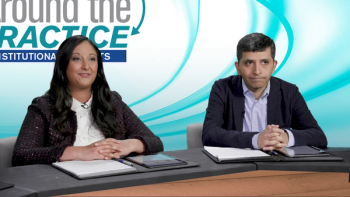
Closing out their discussion on the treatment paradigm of relapsed/refractory multiple myeloma, key opinion leaders highlight key takeaways and future directions in care.
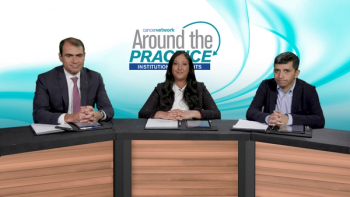
Shared insight on possible real-world applications for FcRH5-targeted bispecific antibody therapy in patients with relapsed/refractory multiple myeloma.
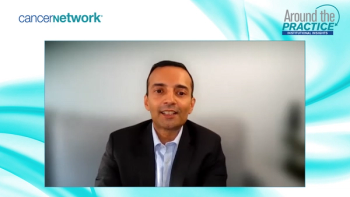
Centering discussion on the final patient case, experts review the case of a patient with relapsed/refractory multiple myeloma managed with FcRH5-targeting bispecific cevostamab.
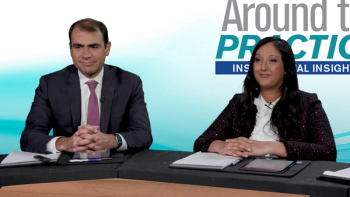
Considerations for the integration of GPRC5-targeted therapy into the real-world treatment paradigm of relapsed/refractory multiple myeloma.

Switching focus to GPRC5-targeted bispecific antibody therapy, expert hematologist-oncologists review a patient case of relapsed/refractory MM managed with talquetamab.

Closing out their module on BCMA-targeted therapy in relapsed/refractory MM, panelists highlight the optimal management of ICANS and infections.

Focused discussion from a panel of key opinion leaders on the presence and management of cytokine release syndrome alongside BCMA-targeted therapy in relapsed/refractory MM.

Shared insight from expert hematologist-oncologists on the real-world application of teclistamab to improve the management of multiple myeloma.

A broad perspective on the development of BCMA-targeted bispecific antibodies for patients with relapsed/refractory multiple myeloma.

Centering discussion on two clinical cases of patients with relapsed/refractory multiple myeloma, expert panelists highlight the use of BCMA-targeted teclistamab in this setting.
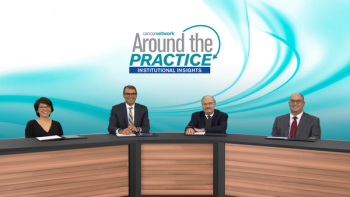
Closing out their module on transplant-ineligible NDMM management, expert panelists consider best practices regarding duration of therapy and adjustments to drug regimens.
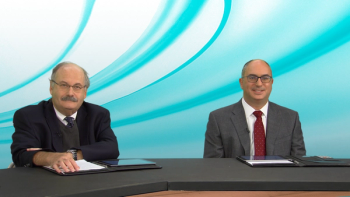
Comprehensive discussion on the array of treatment regimens available for patients with transplant-ineligible NDMM and how best to sequence therapy.
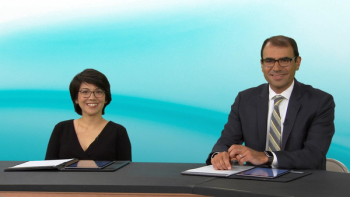
Expert oncologists focus on a final patient case of transplant-ineligible newly diagnosed multiple myeloma and reflect on the treatment armamentarium in this setting.

Before closing out their review of treatment for transplant-eligible multiple myeloma, panelists consider how they might adjust therapy to optimize tolerability or efficacy.

Shared insight on the optimal selection of induction therapy for patients with high-risk transplant-eligible newly diagnosed multiple myeloma.

Centering discussion on a patient case of transplant-eligible newly diagnosed multiple myeloma, expert panelists define high-risk disease and how it impacts treatment.












